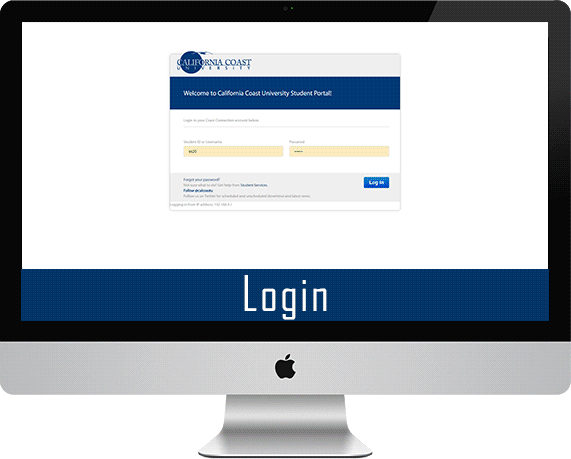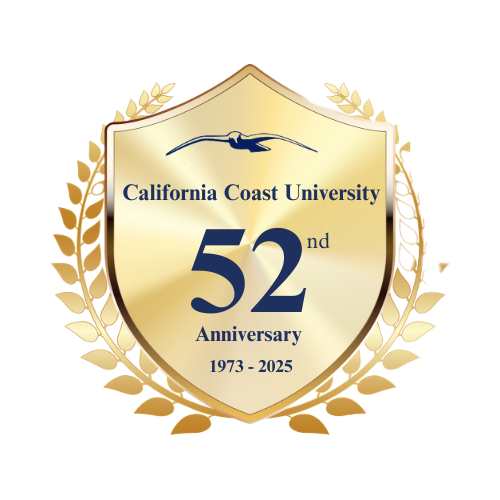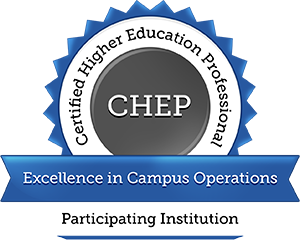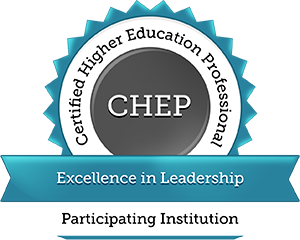|
BAM 110 |
Introduction to Accounting |
3 |
Introduction to Accounting reviews the basic approach to accounting with an emphasis on recording, measuring and communicating the accounting data of business. Basic accounting concepts will be explored, including the effects of transactions on financial statements, payroll accounting, accounting for professional and merchandising operations and state and federal income tax deductions.
Course Objectives:
Upon successful completion of this course, students will be able to:
- Identify and define commonly used accounting terms and key principles, and examine the role of accounting in business.
- Demonstrate an understanding of accounting practices, systems, and processes in a variety of organizational settings.
- Demonstrate an understanding of best practices in cost analysis, pricing, and financial statements.
- Examine accounting processes including budgeting, establishing standard costs, and accounting for fixed assets.
- Demonstrate proficiency with academic writing related to accounting.
|
|
BAM 223 |
Principles of Economics |
3 |
Principles of Economics demonstrates the relevance of economics through real-world business examples. The first part of the course presents microeconomic analysis such as consumer behavior, market structure, firm strategy, and corporate governance. The latter part of the course provides a comprehensive coverage of macroeconomic models, theory and policy issues including GDP, payroll employment, long-run growth, and business cycles.
Course Objectives:
Upon successful completion of this course, students will be able to:
- Identify and define the study of economics including commonly used terms and key principles.
- Demonstrate an understanding of the basics of economics including microeconomic and macroeconomic foundations.
- Discuss the economic analysis, the function of the stock market, measuring GDP, market structure, and firm strategy.
- Analyze long-run economic growth, short-run economic fluctuations, and the importance of economic trends on the local, national, and global levels.
- Demonstrate proficiency with academic writing related to economics.
|
|
BAM 306 |
Principles of Marketing |
3 |
Principles of Marketing examines the various functions of modern marketing including the market, product and price systems, distribution structure, and promotional activities. The course covers services, nonprofit and for-profit organization marketing including the planning, implementation, evaluation, and control of the marketing effort. Ethics in marketing and socially responsible global marketing are also explored.
Course Objectives:
Upon successful completion of this course, students will be able to:
- Define and describe the multiple factors related to the field of marketing.
- Analyze the various types of market opportunities.
- Examine concepts related to product, pricing, and distribution decisions.
- Demonstrate an understanding of promotion and communication strategies.
- Demonstrate proficiency with academic writing related to marketing.
|
|
BAM 317 |
Business Law |
3 |
Business Law takes an interdisciplinary approach to law, using elements of law, political economy, international business, ethics, social responsibility, and management. This course examines law in a business context rather than in the abstract, employing the practical approach that using the law makes it easier to reach business objectives.
Course Objectives
Upon successful completion of this course, students will be able to:
- Describe the various types of economic systems and discuss the role of the government in the American economy.
- Examine the legal and ethical issues related to business law in the U.S. and internationally.
- Demonstrate an understanding of torts, product liability, contracts, and antitrust law.
- Analyze future trends for America’s economic future.
- Examine the laws that protect consumers and the environment.
- Demonstrate proficiency with academic writing related to business law.
|
|
BAM 401 |
International Business |
3 |
International Business reviews the key concepts of international trade and the way it affects the nature of global economic activity. Concepts such as globalization, cultural and political environments, world financial environments, and global strategies are all explored to help students gain a global perspective and to be confident and familiar with international business operations.
Course Objectives
Upon successful completion of this course, students will be able to:
- Explain the value of international business and assess why it is important.
- Demonstrate knowledge of the world financial environment, and identify the major forces driving globalization.
- Understand the role of comparative environmental frameworks in international business.
- Illustrate the major theories and institutions relating to international business.
- Analyze the management of international operations including marketing and human resource management.
- Demonstrate proficiency with academic writing related to international business.
|
|
BAM 418 |
Small Business Management |
3 |
Small Business Management presents an overview of entrepreneurship, including launching a new venture, managing an ongoing venture, financial planning, taxation, and other topics specific to entrepreneurs. Students will learn the necessary elements to successfully start, run, and manage a small business and be able to apply those concepts and ideas within their business careers, even if they do not choose the entrepreneurial route.
Course Objectives
Upon successful completion of this course, students will be able to:
- Demonstrate an understanding of the basics and challenges of small business management including its role in the U.S. economy.
- Recognize the importance of strategic planning and early decisions in small business management.
- Describe key principles of financial and legal management.
- Explain aspects of marketing in small business in relation to products and services.
- Demonstrate proficiency with academic writing related to small business management.
|
|
BAM 421 |
Operations Management |
3 |
Operations Management introduces the theory and practice of operations management and explores the systems approach to tie information together. The course explores issues in operations strategy, development, and implementation. Students will be able to apply various management tools, such as inventory management and supply-chain management, to effectively contribute to managing business operations.
Course Objectives
Upon successful completion of this course, students will be able to:
- Identify and define operations management and assess why it is important to businesses.
- Develop an understanding of product design and process management.
- Demonstrate an understanding of best practices related to process performance improvement, utilizing business forecasting, capacity planning, inventory management, and supply chain design.
- Analyze important issues relating to operations management including location, project management and trends influencing the field.
- Demonstrate proficiency with academic writing related to operations management.
|
|
BCJ 100 |
Introduction to Criminal Justice |
3 |
Introduction to Criminal Justice aims to provide students with a general understanding of the criminal justice system’s response to crime in society. It is important to note that the general theme of this course involves the delicate balance between community interests and individual rights that criminal justice decision-making requires. This theme will be explored by examining the criminal justice process, focusing on how the system is structured to respond to crime.
Course Objectives
Upon successful completion of this course, students will be able to:
- Describe the nature and extent of crime and discuss the foundations of law and the criminal justice system.
- Examine law enforcement from the history of policing through to contemporary issues and challenges confronting the profession.
- Describe the role of the courts in the criminal justice system and the process of prosecution, criminal trial, and sentencing.
- Discuss the key aspects of corrections including its history, community and institutional corrections, prison life, and parole.
- Examine special issues in criminal justice related to juvenile justice, terrorism, human trafficking, hate crimes, and the #MeToo Movement.
- Demonstrate proficiency with academic writing related to criminal justice.
|
|
BCJ 240 |
Procedures in the Justice System |
3 |
Procedures in the Justice System is organized around the theme of balancing the need to detect, investigate, prosecute, and punish crime against the constitutional commitment protecting the rights and liberties of individuals. This course is designed to help students develop a working knowledge of the procedures involved in the justice system and covers the fundamental principles and procedures employed throughout the legal process. Topics include factors related to investigating crimes, considerations and practices related to the procedural and prosecutorial processes, and the trial, sentencing, and appellate processes.
Course Objectives
Upon successful completion of this course, students will be able to:
- Describe the criminal justice process and the sources of criminal procedure.
- Demonstrate an understanding of the factors and requirements related to searches and seizures.
- Examine practices related to interrogations, lineups, and identifications.
- Evaluate the different remedies for constitutional violations.
- Examine the pretrial and trial process, sentencing, and appeals.
- Demonstrate proficiency with academic writing related to procedures in the justice system.
|
|
BCJ 351 |
Forensic Science |
3 |
Forensic Science provides an introduction to the field of forensic science as it relates to crime and terrorism. Students will examine best practices within the field including evidence collection, preservation, and analysis. The methods and science used to analyze physical evidence is presented. This course will also introduce students to the role of forensic science related to terrorism and homeland security.
Course Objectives
Upon successful completion of this course, students will be able to:
- Define forensic science and criminalistics including commonly used terms and key concepts.
- Examine the concept of trace evidence and pattern evidence related to fingerprints, shoeprints, document analysis, and firearms.
- Explore the concept of chemical evidence related to metals, gunshot residue, arson, and drugs of abuse.
- Explore the concept of biological evidence related to toxicology, biological fluids, and DNA typing.
- Assess the role of forensic science as it relates to terrorism investigation.
- Demonstrate proficiency with academic writing related to forensic science.
|
|
MKT 230 |
Consumer Behavior |
3 |
Consumer Behavior explores how the human experience is affected by consumption and how consumers seek value to address other needs. This course examines the internal, external, and situational which affect consumer behavior. The course also covers the role of consumption, value, and satisfaction on consumer behavior.
Course Objectives
Upon successful completion of this course, students will be able to:
- Define consumer behavior, and explain its role in business and society.
- Discuss the internal influences on consumer behavior including perception, cognition, motivation, emotion, personality, and attitude.
- Discuss the external influences on consumer behavior including culture, groups, and interpersonal factors.
- Describe the situational influences which affect consumer behavior and the major perspectives on consumer decisionmaking.
- Explain the role of consumption, value, and satisfaction on consumer behavior.
- Demonstrate proficiency with academic writing related to consumer behavior.
|
|
MKT 310 |
Advertising and Promotions |
3 |
Advertising and Promotions will allow students to see a collective picture of integrated marketing communications. Focus is placed on business-to-business marketing concepts, international marketing discussions, brand management, and various advertising and promotional tactics. This is an integrated approach with a solid advertising core.
Course Objectives
Upon successful completion of this course, students will be able to:
- Describe and examine the foundations and role of advertising, promotion, and marketing.
- Analyze the communications process and examine the role of consumers, ad agencies, and other marketing communication organizations.
- Evaluate objectives and budgeting for integrated marketing communications programs and describe the process of development.
- Demonstrate an understanding of monitoring, evaluation, and control in measuring program effectiveness.
- Examine regulations, global applications, social, ethical and economic issues related to advertising and promotions.
- Demonstrate proficiency with academic writing related to advertising and promotions.
|
|
MKT 333 |
Marketing Management |
3 |
Marketing Management presents marketing management as a core business activity involving everyone in the firm, not just the marketing department, and is structured to improve individual, unit, and organizational performance as it continually adapts and adjusts to the marketplace of the 21st century. Topics covered include: the major challenges facing marketing today; virtual, digital, and social marketing management; analytics, metrics, and measurements available through new technologies; customer-centric and service marketing orientations; branding and brand equity; and global, ethical, legal, and sustainable marketing practices.
Course Objectives
Upon successful completion of this course, students will be able to:
- Define and examine issues currently impacting marketing management (i.e. global, ethical, sustainable, strategy, planning, and competition considerations).
- Discuss best practices for using information to drive marketing decisions.
- Evaluate the essential role of the product experience in marketing.
- Demonstrate an understanding of the key elements of pricing decisions and delivering the value offering.
- Examine the role of promotion and advertising in communicating the value offering.
- Demonstrate proficiency with academic writing related to marketing management.
|
|
MKT 425 |
Social Media Marketing |
3 |
Social Media Marketing explores the growing popularity of using digital technologies to reach consumers. This course aims to further students’ working knowledge on the four zones of social media (community, publishing, entertainment, and commerce). The course explores how social media can be employed to build brands, conduct business, support causes, rally the masses, and forge and maintain relationships.
Course Objectives
Upon successful completion of this course, students will be able to:
- Summarize the process of social media marketing strategies, and describe key concepts related to this process.
- Examine social media consumers and the dynamics of online communities.
- Analyze the four zones of social media including social community, publishing, entertainment, and commerce.
- Examine social media data management and measurement.
- Demonstrate proficiency with academic writing related to social media marketing.
|
|
PSY 102 |
Introduction to Psychology |
3 |
Introduction to Psychology introduces the methods and findings of contemporary psychology and investigates how psychological science can be applied to the world around us. Emphasizing the need for scientific and critical thinking, topics include a survey of biology and behavior, sensory processes, human development, learning and motivation. Emotion, personality, psychological disorders, therapy, and social interaction are also examined to provide students with a solid understanding of the facts, principles, and theories which make up the field of psychology.
Course Objectives
Upon successful completion of this course, students will be able to:
- Discuss the historical foundations of the field of psychology, the function of the brain on behavior, stages of human development, and psychology as a scientific field of study.
- Demonstrate an understanding of processes related sensation and perception, states of consciousness, conditioning and learning, memory, cognition, language, and intelligence.
- Examine motivation and emotion, sexuality and gender development, and personality development.
- Evaluate psychological disorders and psychotherapies.
- Examine key concepts related to the fields of health psychology and applied psychology.
- Demonstrate proficiency with academic writing related to the field of psychology.
|
|
PSY 116 |
Psychology of Gender |
3 |
Psychology of Gender examines the biological, cultural, and historical factors that influence the development of gender roles and identities. Stereotypes of masculinity and femininity are examined, and the impact that these ideas have on our lives at the personal, social, and institutional levels are explored.
Course Objectives
Upon successful completion of this course, students will be able to:
- Define sex, gender and gender identity, and discuss how gender movements have shaped history.
- Examine biological, social, cognitive, emotional, and communicative factors related to gender development.
- Evaluate issues related to gender stereotyping, discrimination, and power.
- Describe the factors related to gender that affect health and wellbeing.
- Demonstrate proficiency with academic writing related to the psychology of gender.
|
|
PSY 220 |
Developmental Psychology |
3 |
Developmental Psychology introduces students to the scientific study of patterns of change and stability that occur as we move through the process of human development from conception to death. Various theories of development will be presented and an emphasis on physical, emotional, cognitive, and psychosocial changes throughout the lifespan will be discussed.
Course Objectives
Upon successful completion of this course, students will be able to:
- Define human development, discuss how it is studied, and examine the major theories and stages of development from infancy to late adulthood.
- Examine the genetic, environmental, and physical factors related to the varying developmental stages.
- Evaluate the factors of sensation, perception, cognition, memory, learning, intelligence, creativity, and language related to the varying developmental stages.
- Demonstrate an understanding of the self, personality, social and moral development, gender roles, sexuality, emotions, attachment, and relationships related to the varying developmental stages.
- Demonstrate an understanding of unique factors related to developmental psychology, psychopathology, death, and bereavement.
- Demonstrate proficiency with academic writing related to developmental psychology.
|
|
PSY 228 |
Social Psychology |
3 |
Social Psychology offers students an in-depth look at how people come to understand themselves and others in a social context, with considerable emphasis on society’s role in social psychology. Each chapter in this course will introduce students to key individuals within the realm of social psychology whose research has made a significant contribution to the field.
Course Objectives
Upon successful completion of this course, students will be able to:
- Define the field of social psychology and describe its foundations, key terms, and theories.
- Examine theoretical perspectives related to social psychology and research methodologies.
- Evaluate the individual in society including stratification, self and identity, and socialization over the life course.
- Analyze the various areas of social life.
- Demonstrate proficiency with academic writing related to social psychology.
|
|
PSY 380 |
Personality Theories |
3 |
Personality Theories introduces students to key scientific perspectives on human personality. This course examines major theoretical approaches, including psychodynamic, psychoanalytic, behaviorist, phenomenological, biological, and cognitive frameworks: to understand how personality develops, functions, and is assessed. In addition, this course emphasizes research methods and contemporary assessment practices used to study personality, fostering connections between theory, empirical evidence, and real-world applications.
Course Objectives
Upon successful completion of this course, students will be able to:
- Analyze the foundational principles underlying major personality theories within cultural and social contexts.
- Compare and contrast psychodynamic and psychoanalytic approaches to personality development.
- Apply behaviorist and phenomenological concepts to interpret observable patterns of human behavior.
- Evaluate biological and cognitive approaches in explaining personality structure and variation.
- Examine methods used in personality research and psychological assessment.
- Demonstrate proficiency with academic writing related to theories of personality.
|
|
PSY 408 |
Abnormal Psychology |
3 |
Abnormal Psychology offers students an integrative approach to the study of psychopathology, drawing on contributions from various disciplines and theoretical stances. Through clinical case studies, the psychosocial and psychophysiological factors of abnormal behavior are examined, along with the exploration of prevention efforts and research-based advancements in the field.
Course Objectives
Upon successful completion of this course, students will be able to:
- Define abnormal behavior and describe the historical conceptions of abnormal behavior.
- Demonstrate an understanding of the various types of psychological disorders, their causes, and types of treatment.
- Examine the processes of clinical assessment, diagnosis, and research in psychopathology.
- Evaluate the legal and ethical issues that pertain to mental health services.
- Demonstrate proficiency with academic writing related to abnormal psychology.
|
.png)










.jpg)






